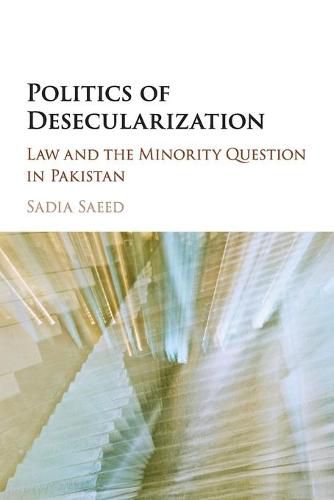Readings Newsletter
Become a Readings Member to make your shopping experience even easier.
Sign in or sign up for free!
You’re not far away from qualifying for FREE standard shipping within Australia
You’ve qualified for FREE standard shipping within Australia
The cart is loading…






The movement away from secularist practices and toward political Islam is a prominent trend across Muslim polities. Yet this shift remains under-theorized. Why do modern Muslim polities adopt policies that explicitly cater to religious sensibilities? How are these encoded in law and with what effects? Sadia Saeed addresses these questions through examining shifts in Pakistan’s official state policies toward the rights of religious minorities, in particular the controversial Ahmadiyya community. Looking closely at the ‘Ahmadi question’, Saeed develops a framework for conceptualizing and explaining modern desecularization processes that emphasizes the critical role of nation-state formation, political majoritarianism, and struggles between ‘secularist’ and ‘religious’ ideologues in evolving political and legal fields. The book demonstrates that desecularization entails instituting new understandings of religion through processes and justifications that are quintessentially modern.
$9.00 standard shipping within Australia
FREE standard shipping within Australia for orders over $100.00
Express & International shipping calculated at checkout
The movement away from secularist practices and toward political Islam is a prominent trend across Muslim polities. Yet this shift remains under-theorized. Why do modern Muslim polities adopt policies that explicitly cater to religious sensibilities? How are these encoded in law and with what effects? Sadia Saeed addresses these questions through examining shifts in Pakistan’s official state policies toward the rights of religious minorities, in particular the controversial Ahmadiyya community. Looking closely at the ‘Ahmadi question’, Saeed develops a framework for conceptualizing and explaining modern desecularization processes that emphasizes the critical role of nation-state formation, political majoritarianism, and struggles between ‘secularist’ and ‘religious’ ideologues in evolving political and legal fields. The book demonstrates that desecularization entails instituting new understandings of religion through processes and justifications that are quintessentially modern.